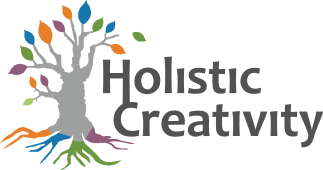
The Practical Power of Gratitude
October 13, 2021 | Categories: Articles
One of the most effective forms of personal transformation is the practice of Gratitude. It costs nothing, can be done anytime and anywhere, and has a remarkable impact. The word gratitude is derived from the Latin word gratus, meaning “thankful.” A regular practice of reflecting on ‘what we can be thankful for’ or ‘what makes life worth living’ is known to have profound effects on our overall well-being and, therefore, profound impacts on our creative potential.
Gratitude is a central spiritual virtue in many of the world’s philosophies and religions, including Christian, Buddhist, Muslim, Jewish, Baha’i, and Hindu. The practice of giving thanks for ‘our daily bread‘ is a pillar of devotion. Cicero, the acclaimed statesman and philosopher of Ancient Rome, declared that “Gratitude is not only the greatest of the virtues, but the parent of all others.”
More recently, psychological research has corroborated the ancient wisdom of Cicero. It has identified several specific Gratitude behaviors that profoundly affect subjective well-being: an appreciation of people, the present moment, possessions, feelings of awe, rituals, existential concerns, and social comparisons. One result of these explorations was the creation of a modern field of study, Positive Psychology, which is the “scientific study of the conditions and processes that contribute to the flourishing or optimal functioning of people, groups, and institutions.”
Current research in Psychology and Neuroscience considers the practice of Gratitude to be uniquely important. It has profound effects on physical health, emotional health, cognitive function, motivation, resilience, relationship stability, self-esteem, and life satisfaction, among other vital outcomes. These correlations have profound implications for our quest to achieve Holistic Creativity and function optimally as people, groups, or institutions.
One seminal study, Optimism, Coping, and Health by Michael F. Scheier and Charles S. Carver, was published in Health Psychology in 1985. They developed a ‘hopefulness test’ and an ‘optimism scale’ that found correlations to human motivation, which is a critical function for creative resilience and productivity.
Eric Kim, a research fellow in the Harvard University Department of Social and Behavioral Sciences, published findings in 2016 that note “optimism can be altered with relatively uncomplicated and low-cost interventions [emphasis added] . . . even something as simple as having people write down. . . the best possible outcomes. . . .” Daily journaling is one of our recommended exercises.
Professor Barbara Fredrickson, a University of North Carolina Social Psychologist, has studied positive emotions for 25 years. “I think of positive emotions as nutrients. In the same way that we need to eat a variety of fruits and vegetable to be healthy, we need a variety of positive emotions in our daily experience to help us become more resourceful versions of ourselves.”
Prof. Fredrickson explicates perhaps the most significant finding for our purposes as creative individuals: “What seems to be unique about positive emotions is that they expand our awareness [emphasis added] so that in the moment that we are experiencing positive emotions —and they are very fleeting states, they last from seconds to minutes, not hours, weeks, and years— our peripheral vision expands, our ability to take in more of our surroundings and connect the dots and see the big picture is facilitated . . . .”
The practice of Gratitude —as a connection to true Power— can be transformative, achieving a measurable influence on our ability to be engaged, inspired, and productive.
